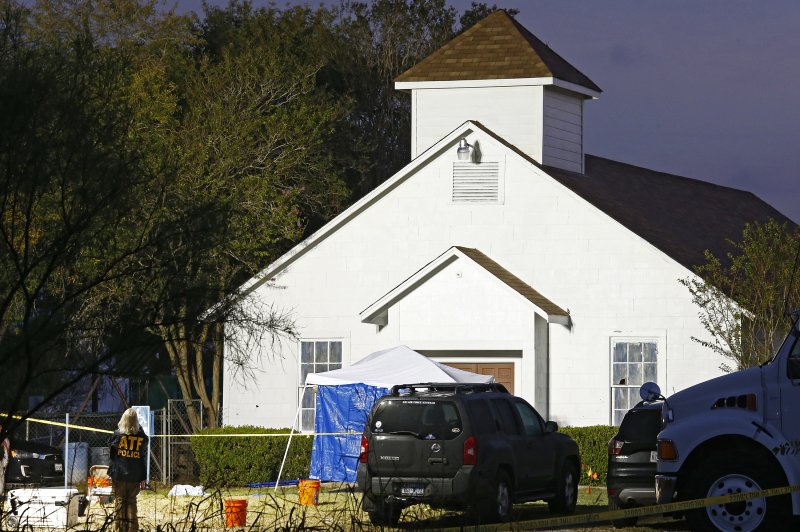Dec. 7 (UPI) -- The U.S. Air Force failed to notify the FBI about six incidents that would have prevented the Sutherland Springs, Texas, shooter from purchasing a gun, a watchdog report said Friday.
The Inspector General of the Defense Department said if the Air Force had followed its own protocol, it would have submitted Devin Patrick Kelley's fingerprints to the FBI background check database four times in relation to his court martial conviction on domestic assault charges. The military branch also should have submitted two reports on Kelley's final disposition.















